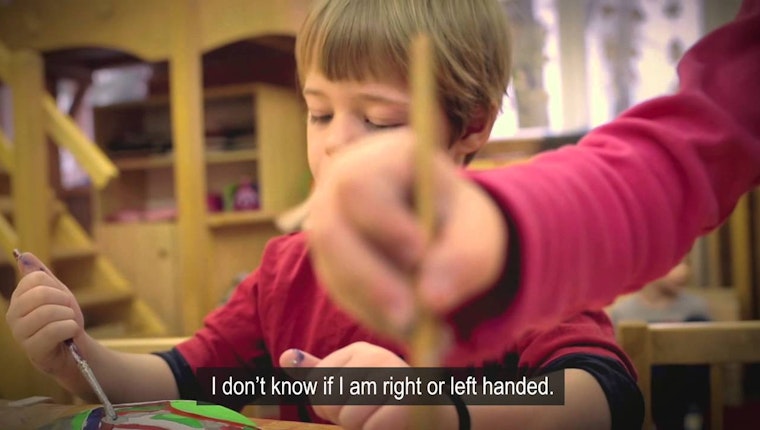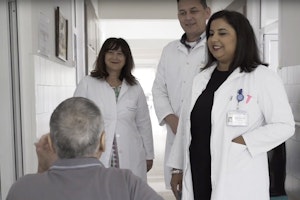We Laugh Together, We Educate Together: A Hungarian Campaign on Inclusive Education
By Laura Cziszter & Boglarka Fedorko

The Hungarian civil society organization UCCU Roma Informal Education Foundation recently launched a campaign film designed to raise awareness and encourage discussion on the issue of inclusive education in Hungary. The film offers an accessible way into the subject, and aims to combat the attitudes and prejudices that have resulted in a segregated and “closed” education system in Hungary.
Recent research has shown that current segregation practices in the Hungarian education system lead to deepening social inequalities. This segregation occurs when children of different backgrounds—socioeconomic, national, or ethnic—are educated in separate schools or separate groups within schools.
The free school choice system in place in Hungary allows parents to send children to any school of their choice. This unfortunately results in a highly selective system. Middle-class families will send their children to better schools and poorer families—due to their lack of information and the cost-benefit trade-off they face for example with commuting costs—will keep their children in the nearest, and often poorer, local school. Furthermore, fears and prejudices that many parents have about their children sharing a classroom with children they perceive to be “different”—such as Roma or children with special needs—inevitably lead to a segregated system. Consequently, children of disadvantaged families are more likely to receive lower quality education that limits their opportunities in life. This segregation of the education system not only reproduces social inequalities but is also at odds with research suggesting that appropriately applied, inclusive pedagogy tools contribute to enhancing children’s performance, self-esteem, and tolerance.
In an effort to raise awareness of these issues, Hungarian civil society organization UCCU Roma Informal Education Foundation recently launched a campaign highlighting the positive aspects of inclusive education. The campaign will work with parents to overcome prejudices and fears concerning inclusive education and will highlight the benefits inclusive education brings to entire communities, as well as moderating parental forums where concerns can be discussed.
As a first step, UCCU Roma Informal Education Foundation has launched a campaign film featuring a kindergarten group where diversity brings richness and learning opportunities to all the children in the group. The film, bearing the motto “We laugh together, we educate together”, is being disseminated through various websites and social media channels. Since its recent launch, it has been met with rapid and positive feedback from the public. The film will also be featured as a social advertisement in the mainstream media, and screened in cinemas, theatres, cultural and community venues.
In addition to this film, the campaign consists of a series of parental forums in communities where, for example, parents are opposing integrated education, and segregation practices are in place, with a longer documentary film serving as a point of departure for an open discussion regarding the merits of inclusive education. A key focus is to work with parents in these communities in order to gain a better understanding of their attitudes towards and to defuse fears and misunderstandings relating to integrated education. Screenings and roundtable discussions are also planned in major cities in Hungary, including Szeged, Pecs, and Miskolc.
This campaign is implemented through the collaboration of several Hungarian civil society organizations working closely with marginalized children and communities vulnerable to social exclusion. The project has already enabled these organizations to share their expertise and resources in order to jointly address the issue of social exclusion in education and to help societies embrace inclusiveness and tolerance.
Set up by the Open Society Education Support Program, the Grassroots Europe Initiative, a collaboration between many of these Hungarian civil society organizations and others across Europe, supports European civil society in fulfilling its role in building tolerant, open, and cohesive societies where all children have the right and the opportunity to access quality education. The initiative, which is based on the principle that community-rooted grassroots organizations are the best placed to address local issues, and to effectively reach out to vulnerable groups, supports and amplifies these community-driven efforts, and in recognition of this was awarded best practice project status in 2011 by the Education, Audiovisual, and Culture Executive Agency of the European Union.
Until April 2014, Laura Cziszter was senior program coordinator with the Open Society Education Support Program.
Until March 2014, Boglarka Fedorko was program coordinator for the Open Society Education Support Program.


